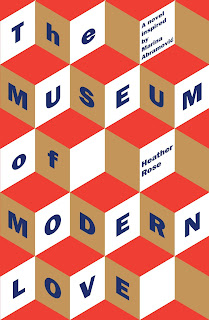Extinctions by Josephine Wilson
Blog written by Melissa
Extinctions was selected as it won Australia’s most prestigious literary award - The Miles Franklin. It also offered subject matter of interest to us all, including the Stolen Generation, family relations and trauma, ageing, our capacity for forgiveness, migration, adoption, the things we hold onto, the things that are disappearing... and more… One member found it ‘immensely satisfying’ with beautiful writing. Another member found it ‘highly relatable' and the main character ‘very familiar'. Yet the majority of the group seemed to experience an overall feeling of disappointment. The protagonist, Fred Lothian, was a difficult character to enjoy, even though we all agreed, of course, that a character does not have to be likeable for a book to be satisfying (eg. Humbert in Lolita). One member found that the brief time span allowing Fred’s partial enlightenment to be unbelievable. Most found the story generally depressing. It is a world of damaged people, who sadly do not all find ways to heal from their past trauma and therefore perpetuate the continuation of this damage onto those around them.
Excerpt below from Sydney Review of Books - Roslyn Jolly 30/3/17
https://sydneyreviewofbooks.com/extinctions-josephine-wilson-review/
"...Frederick Lothian is a deeply flawed, emotionally stunted, at times repellent character. He has grave sins, both of omission and commission, on his conscience. He has contributed, with varying degrees of responsibility, to the destruction of three young lives. To speak of relationship breakdown does not begin to cover the amount of damage he has done to his marriage. Watching Fred grope his way towards self-insight and accountability is an experience both painful and fascinating, and I found his character convincing as the product of a particular childhood in particular historical conditions. I did, though, run into two problems of plausibility. One was that he seemed to me much older than his sixty-nine years — although perhaps this in itself is a reflection of his personality. The other, more serious, problem was that I could not see what it was that could ever have attracted Martha to him. The marriage is presented as, from the start, a mismatch, but it seems to me important to believe that Martha was once so in love with Fred that she left family and country behind to accompany him to Australia, committing her future irrevocably to his. I don’t think we’re given enough evidence that Fred was ever appealing enough to make this happen.
One of Fred’s habits of thought is to describe himself, to himself (and once to Jan) as a monster; and indeed he asks himself the question, ‘How could anyone have loved such a monster?’ (Frankenstein’s monster, of course, asks himself similar questions.) This is one of the times when we have to read beyond Fred’s point of view, to discount the easy formulas on which he relies in what psychologists would call his ‘self-talk’, but also to dig down to the truths lurking within his metaphorical language. (At one point Fred thinks ‘Monsters had no need of poetic language. Metaphor was lost on monsters’, but the very fact that he describes himself as a monster shows that this isn’t true.) When Fred says to Jan ‘I am a monster’ and starts to cry, he is indulging in self-pity and perhaps fishing for the expected reassuring rejoinder, ‘no you’re not’ (which Jan doesn’t supply). But when his thoughts turn to a couplet from Dryden’s translation of the Aeneid Book 6 – for Fred fancies himself as something of a classicist – we’re given something more useful to work with:
Here dwells the monster, hid from human view
Not to be found, but by the faithful clew.
With this reference, Fred figures himself as the Minotaur, a creature of darkness to whom an endless series of youths must be sacrificed. How to destroy the monster and break the curse? The myth shows us that it is only possible by tracing a path to the deepest, darkest place where the monster lurks at the heart of his labyrinth, and then, crucially, tracing a way out again. To do this, Fred will have to rethink how he has always previously practised the archaeology of trauma: ‘Why was he digging up what was done when he’d just have to go bury it again?’ He has to learn to dig, and not to re-bury.
What is the relation between facing the past and being able to create a future? The novel ends not with Fred, but with its other main centre of consciousness, Caroline. This shift of focus restores historical and national contexts to the foreground of the narrative. A motherless child and childless would-be mother, Caroline has become a wanderer upon the face of the earth, searching for others ‘who understood the threat of extinction’ in whatever way that understanding might have come. Whether she will remain a prisoner of the past or of her own singularity, a last Mohican or a mateless one-of-a-kind, is a question Josephine Wilson leaves open at the end of the book, but there are suggestions of paths forward, forms of salvage and adaptation, and ways of creatively engineering a future."
Our next meeting is at Meredith's on
Aug 15 Wed and our selection is
The Museum of Modern Love by Heather Rose







